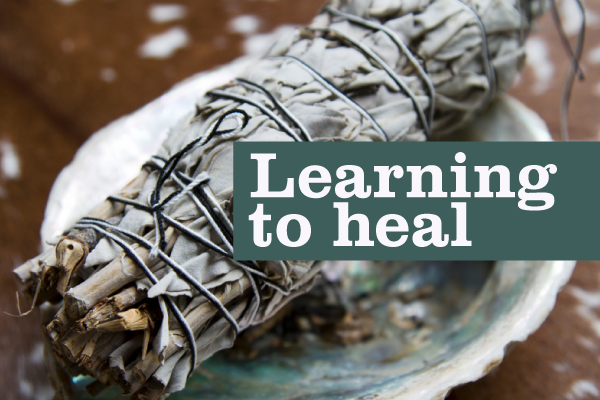Last month, Ruby Langan organized a writing workshop focused on aboriginal awareness and healing. As UNE’s national equity representative for Aboriginal Peoples, Langan said the workshops’ participants had a very diverse range of interests.
“My intention was to get people writing and increase awareness of aboriginal human rights,” she said. “I believe that the writing process is a good way to start healing, which is a very important part of what I’m trying to accomplish.”
The workshop primarily attracted members of the aboriginal community around Vancouver. Langan said that many people are reluctant to begin writing. Participants were provided a safe, welcoming, encouraging environment and constructive feedback.
Residential schools and the foster care system have done untold damage to the links between First Nations Peoples and their culture.
“Cultural ties have been broken; people are just now trying to re-establish them,” she added.
Other topics discussed were individual healing journeys, drinkable water, human rights, marriage in traditional aboriginal societies, and environmental protection.
“I was amazed that we could have such a diverse range of interests and expertise in the workshop participants.”
“Many of us could benefit from healing,” concluded Langan. “I am on a healing journey. I am on a learning journey. Aren’t we all?”
“The relationship between Canada and First Nations is ever-changing. We can bring together learners and teachers and empower our members – aboriginal and non-aboriginal.”
Around the same time, the PSAC regional office in Quebec also provided a two-day training session on aboriginal issues. Julie Dubois, an assistant regional vice-president in Quebec, couldn’t wait to participate.
“As a young woman of aboriginal origin, I have a tremendous drive to learn more about the realities of Aboriginal Peoples in Canada,” explained Dubois. “It’s important to me to be able to debunk and challenge the myths surrounding aboriginal people.”
Dubois pointed out that most people know very little about aboriginal communities, other than the disinformation that takes place in the media.
Magali Picard, regional executive vice-president for the PSAC’s Quebec region, took the opportunity to deliver a speech that blew away the room.
“It’s as if her words came out as flaming arrows – she has an energy that is completely hypnotising and a charisma that could capsize any enemy,” declared Dubois.
A subject that frequently made its appearance was the Idle No More movement – and how allies can support its cause. Participants were even treated to a video that put the spotlight on the co-founders of the movement’s Quebec branch.
Another noteworthy moment was a heartfelt testimonial by Viviane Michel, who heads Quebec Native Women Inc. She touched on a host of challenges that aboriginal women grapple with, including the lack of resources, difficult financial situations, single mothers and the differences in language, among others.
Another important topic was the troubling number of missing and murdered aboriginal women. Michel also took the opportunity to mention that an equally troubling number of aboriginal men are missing. VICE recently reported that Six Nations Journalist Jen MtPleasant has compiled a database of over 600 missing or murdered aboriginal men in Canada.
The number of missing and murdered native women is estimated to be anywhere from 600 to 4,000; the range is indicative of a systematic problem when it comes to law enforcement collecting racial data.
In the end, Dubois said she left the training with new convictions with respect to aboriginal solidarity. Eager to share her experience, she wrote a two-page report that she intends to share with her region.
“While I’ve satisfied my thirst for knowledge, I can tell you that I still have a really strong desire to learn more – I can feel it in my veins!
